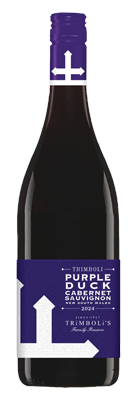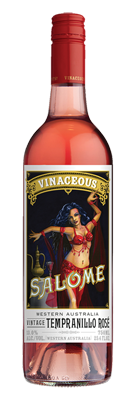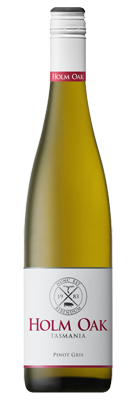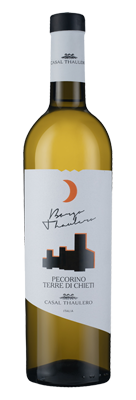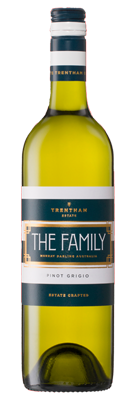Filter by
- A new addition to Sam Trimboli's 'Duck' family - a fabulous, elegant Cabernet.$18.00 RRPfrom $12.99 when you mix 12+
- Elegant, good-looking rosé from cricket legend Ricky Ponting and award-winning winemaker, Ben Riggs.$25.00 RRPfrom $23.99 when you mix 12+
- This small-batch McLaren Vale Shiraz is so good! No surprise it's won Gold already!$35.00 RRPfrom $29.99 when you mix 12+
- $30.00 RRP$22.99 when you mix 12+
- Enjoy silky, bright berry fruits and lightly toasty oak notes in this elegant Rioja Crianza$32.00 RRPfrom $21.99 when you mix 12+
- Reserva level version of a fabulous Portuguese rarity with SIX Golds (two Double Golds among them).$34.00 RRPfrom $23.99 when you mix 12+
- Alluring 90pt, Great Value Tempranillo rosé from the dynamic Vinaceous Wines.$22.00 RRPfrom $18.99 when you mix 12+
- New exclusive Riesling, with a Gold already, from one of Australia's oldest family owned wineries.$25.00 RRPfrom $19.99 when you mix 12+
- 96pt Barossa. “A magnificent Shiraz" (Wine Orbit) with "... a long, velvet-like finish" (Halliday).$95.00 RRPfrom $89.99 when you mix 12+
- 91pt “appealing” (Halliday) Gris with “inviting aromas of crunchy nashi pear, citrus & green apple”.$32.00 RRPfrom $29.99 when you mix 12+
- Well-balanced, generously fruited McLaren Vale Shiraz from the Curtis family winemakers since 1973.$150.00 RRPfrom $99.99 when you mix 12+
- Though happily based in Orange Peter Logan uses Clare fruit for this Gold-medal exclusive Riesling.$24.00 RRPfrom $19.99 when you mix 12+
- Top Gold-winning 92pt, Great Value Shiraz rich blend from brilliant Bleasdale.$22.00 RRPfrom $19.99 when you mix 12+
- Don't miss this Great Value "seriously good" (Wine Orbit) Sauvignon with scores of 95 and 92pts.$30.00 RRPfrom $25.99 when you mix 12+
- $28.00 RRPfrom $21.99 when you mix 12+
- Adelaide Hills Sauvignon from Tim Knappstein – varietally bang on, with scores of 90, 92 and 93pts,$24.00 RRPfrom $18.99 when you mix 12+
- A rich, velvety Cabernet with shiny Gold again... we prophesy that you'll LOVE this exclusive red!$42.00 RRPfrom $19.99 when you mix 12+
- An exquisitely hand-crafted PG cleanskin from a secret source in cool-climate Hilltops.$35.00 RRPfrom $27.99 when you mix 12+
- Latest vintage of 95pt, Gold “cracking wine… everything you could want from a Prosecco” (Winepilot)$25.00 RRPfrom $18.99 when you mix 12+
- A Trophy-winning, Gold, 94pt classic cool climate Chardonnay bursting with flavour.$48.00 RRPfrom $41.99 when you mix 12+
- A rich, punchy triple-whammy blend of Malbec, Shiraz and Durif from Sam Trimboli$20.00 RRPfrom $13.49 when you mix 12+
- A fruity and grassy-fresh, frequent Gold-winning Marlborough Sauvignon from a pioneering estate.$25.00 RRPfrom $21.99 when you mix 12+
- A gorgeous aromatic, Adelaide Hills Gris with pear, Granny Smith apple, lemon, lime zest & lychee!$30.00 RRPfrom $24.99 when you mix 12+
- "Small in price but big in Grigio personality...91pts. Great Value" (Halliday)$18.00 RRPfrom $17.99 when you mix 12+

